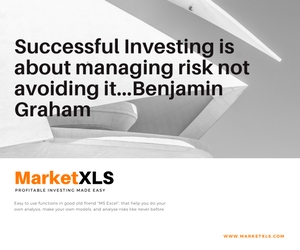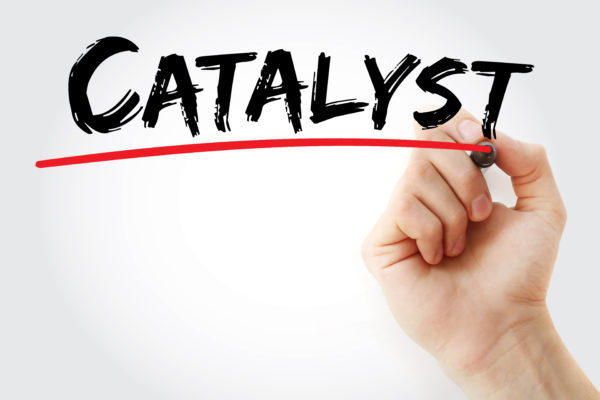In chemistry, a catalyst is a substance that is added to an inert, or inactive, solution that causes a chemical reaction to occur. In investing, we use the same term to describe a pivotal event that acts as a “game changer.” Sometimes a stock has all the pieces in place, and it just needs a good catalyst to cause a dramatic surge in share price.
These four small healthcare companies have labored in obscurity to maneuver themselves into a winning position. They are all about to experience a significant event that could “flip a switch” and cause the market to realize their value. Here are four good bets for 2019:
1. ADMA BIOLOGICS, Inc.
Remember, “The Boy in the Plastic Bubble?” with John Travolta? This 1970’s tear jerker was the true story of a boy who suffered from PIDD (Primary Immune Deficiency Disorder). The boy had no immune system, which didn’t end well, as you can imagine. ADMA Biologics is boldly attempting to write a new ending to the sad story of PIDD sufferers.
ADMA has compelling phase 3 data on a novel way of pumping up fragile or non existent immune systems. RI-002 was actually found to be effective a few years ago, but has suffered an epic series of setbacks and frustrations on its way to commercialization. It turns out, not only was RI-002 hard to discover, but the liquid, derived from human blood plasma, is not easy to make or store.
After ADMA’s original contract manufacturer failed to pass governmental inspections, ADMA decided to control production itself. This would constitute a great leap for a tiny company with no revenue and limited cash in the bank. But ADMA was able to secure the necessary funding and management expertise to turn the situation around. As of October, 2018, the Boca Raton, Florida manufacturing facility has passed government inspection, and stands ready to produce RI-002 as soon as it is approved.
ADMA has submitted its phase 3 data to the FDA for approval, and expects approval on or before April 2019. If ADMA’s production odyssey results in a Spring product approval, suddenly money will be coming in the door and the company will go from a cash incineration machine into a cash positive, vertically integrated manufacturer of a hard to make, in demand, medicine. How is that for healthy?
2. COHERUS BIOSCIENCES, Inc.
Like ADMA, Coherus has been investing for years to create the necessary infrastructure to launch its first revenue producing product. The company has been on it’s own journey to gain approval for it’s pipeline of biosimilar medicines. Biologics are highly expensive medicines that are hard to make, and hard to copy, because they are manufactured by living bacteria. Many of the largest selling, and most controversial, drugs in history are biologics. Biosimilars copy these blockbuster drugs.
Coherus has just gained FDA approval for Udyenca, a copy of the cancer drug Neulasta. Neulasta is a global mainstay of chemotherapy, and represents a market of approximately $4.2 Billion in sales. If Coherus can gain just 5% of that market, then Coherus can go from $0 in revenue to $250 million almost overnight.
Some have doubted whether Coherus will find a place in this market. They note that Mylan pharmaceutical has already launched its own biosimilar for Neulasta. In fact, Coherus’s share price has actually SUNK since it gained FDA approval for Udyenca.
The companies launching biosimilar products are pioneers, and no one knows exactly how the market will play out. What we do know is that Coherus now possess a viable, approved copy of one of the most widely sold cancer drugs in the world. Unlike generic pills, these copies are not easy to make. Even if Coherus lacks the marketing muscle to effectively compete with larger companies such as Mylan, there is a good chance that Coherus could be acquired by a Big Pharma heavyweight. Companies in this space are often valued at 4 times revenue; if Coherus could capture just 10% of the Neulasta market, that would leave us with a presumed valuation of $1.6 Billion. At current share prices, Coherus is worth just $700 million in the open market. 2019 could be the year to double your money by investing in Coherus stock.
3. SENSUS HEALTHCARE, Inc.
Sensus Healthcare currently competes in the skin cancer market. This small equipment maker has carved out a growing niche for itself selling next generation radiation devices to dermatologists around the world. These devices represent a less intrusive alternative to Mohs Surgery for elderly patients. Revenue has grown at a steady 30% clip for three years since it’s IPO in 2016. The company believes that it has only achieved 1% market share up until now, meaning that Sensus could see dramatic growth if it were content to just stick with dermatology.
But the company is making a gutsy bet to diversify and increase its revenue stream. Leveraging it’s engineering expertise, and pre-existing manufacturing capabilities related to radiation, Sensus will be launching the Sculptura Intra-Operative Robotic Radiotherapy System in 2019. This machine will be used to treat breast and other cancers, a whole new world for Sensus.
If this bet works, Sensus will become a “two headed dragon,” with a leadership position in two different growing medical markets. And the Sculptura may represent a quantum leap in revenue opportunities; each machine sells for $1 million+. For a company with only about $25 million in revenue in 2018, just a few sales per year could mean lightening quick top line growth.
If Sensus Healthcare could grow annual revenue from $25 million to $40 or even $50 million in revenue over just the next few years, share price should follow…..
4. NEOGENOMICS, Inc.
Neogenomics is the most established of any of the companies on this list. With a market value of $1.5 billion, NEO has already experienced spectacular growth over the last three years. However, a recent acquisition by the company could mean that Neo’s growth phase is only beginning.
By early 2019, Neogenomics will have completed its acquisition of Genoptix, Inc, transforming the combined entity into a cancer super power. This acquisition means that, if you are diagnosed with cancer in the United States, it’s very likely that your oncologist will rely on data from Neogenomics to help decide your course of treatment.
Starting in 2019, the combined entity will be hooked into an eternally growing market in two ways. First, anything having to do with cancer will experience constantly growing demand as America ages. Simply put, old age is currently the single largest risk factor for cancer diagnosis; and we are cranking out a record number of senior citizens, with 10,000 people per day turning 65 in America.
Secondly, recent advances in oncology have only underlined the critical role of genetics in the diagnosis and treatment of cancer. Oncologists are having more and more success battling cancer, but the treatments must be laser focused to each cancer’s genetic story. In fact, many new immunotherapies rely on complex, advanced testing to deliver maximum efficacy. Neogenomics and Genoptix together may present a strong option to deliver those increasingly complex and necessary genetic results.
Lastly, because the science around oncology is moving so quickly, the new, improved Neogenomics should face a limited field of competitors. There just aren’t that many entities that have both the strong scientific reputation and the sustained investment in new equipment that would be required to compete.
A steadily growing market with limited competition. Sounds like a recipe for a profitable 2019….
These picks are not without risk. All are small companies that have chosen to make daring bets in an effort to grow. As the old saying goes, “Nothing ventured, nothing gained.”
Wishing you profitable ventures, and thrilling adventures in 2019….
DISCLOSURE: The Sick Economist owns shares in these companies.











2 thoughts on “4 SMALL CAP BIOTECH STOCKS THAT COULD DOUBLE IN 2019”
Comments are closed.